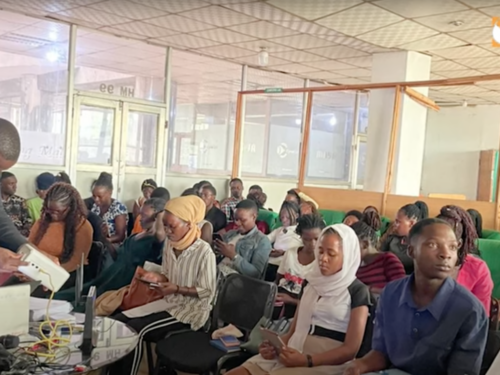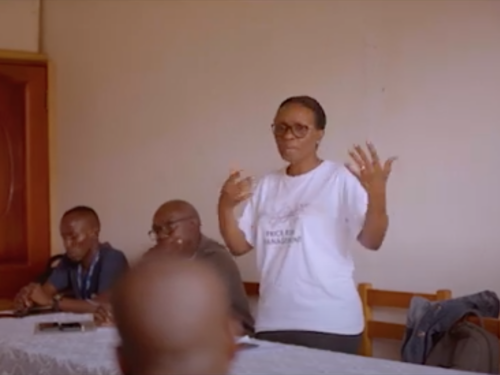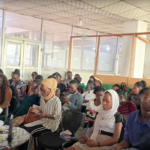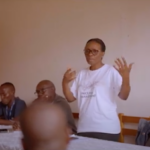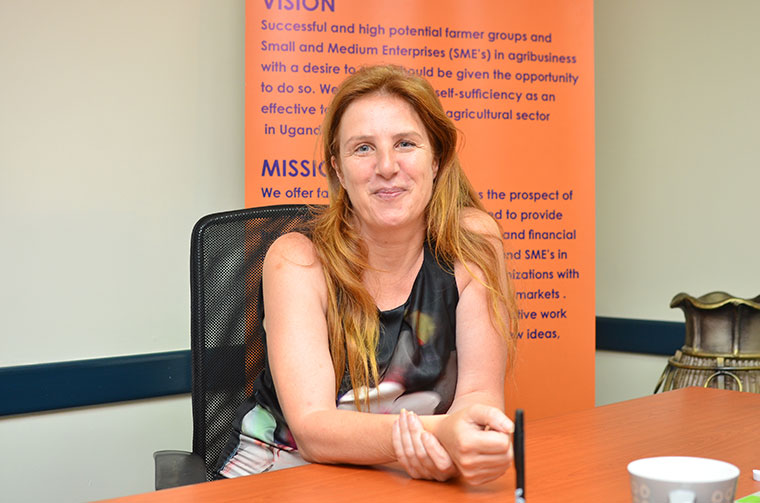
ANJA DE FEIJTER, the Executive Director of Agribusiness Development Center [ADC], has said Uganda needs to focus more on agriculture if the country is to feed its growing population.
In an interview with The Observer, DE FEIJTER told Baker Batte Lule why there is need to train farmers in different skills.
Briefly, what is ADC all about?
It stands for Agribusiness Development Center and it is an initiative of the Rabobank foundation and dfcu bank. The two signed an MOU in 2015 to start this iniative.
The Rabobank foundation did the same initiative in Tanzania with the NMB foundation six years ago to assist farmers and we thought that it would really be a good initiative for Uganda. The Rabobank invested in dfcu bank and it is a Dutch agriculture corporative bank.
The money which was injected into ADC by dfcu Bank and Rabobank Foundation in the Netherlands is set to benefit farmers for the next five years. Today, it is the second largest bank in the Netherlands. They said they would like to play an important role in the agricultural sector of Uganda.
What type of farmers do you target?
We look at the value chain where investments are needed. We selected value chains that we think are relevant, such as maize, sugarcane, dairy, oilseeds. The farmers we look for must be working in groups and cooperatives. They have to prove that they are part of an active group or cooperative.
They have to show that they have been active for the last three or four years. We don’t want to have farmers that are forced in a group just because they want to have access to finance. We started our first training in Lira a few weeks ago.
Agriculture is one of the most unpredictable sectors affected by changes in weather, making it a risky venture for banks to advance credit. How do you hope to turn this around?
Dfcu bank is now developing new agricultural products, part of which is agricultural insurance.
So, if you get a loan from dfcu bank, then the bank will advise the farmer to get insurance as well so that when there are problems such as drought, then a farmer can get some of his money back.
But insurance is one of those things that Ugandans haven’t embraced fully.
Even in that sector, it will be about training and educating the farmer about what they should be looking at when looking for insurance.
It is the same as talking to the banks; some farmers fear to negotiate interest rates; they think that they are fixed, yet actually, it’s about negotiating a product. The farmers should be able to ask the difficult questions when negotiating for an insurance product.
Are there some selected parts of the country that you are going to focus on?
There are some areas because of the value chain. We also look at the branches of dfcu bank because they give us office space.
So, our business advisors will be in all those areas where dfcu bank has a branch. Now, the bank has more branches; it means we can be in most parts of the country. As for now, we have started in Hoima, Mbale, Lwengo, Masaka and Lira. So, depending on the success and finances, we will spread out to other parts.
What would you identify as the biggest challenge that farmers face?
Lack of access to finance has got a huge impact on the agricultural sector. This has made it very difficult for farmers to get quality products and this has led to farmers having very low-quality produce.
So, if they can get access to enough funding for their products they can also improve on their yields. And once they are able to increase their yields, even if for one season, they can build their capital and in the next season they can start buying better-quality products.
Farmers also complain about markets, saying even when they have got better yields they have nowhere to sell them. Is that something you would address?
If a farmer would know his market well, he would start planning when to start sowing. But at the moment, farmers don’t care about these things. They start thinking about the market when the product is almost ready.
This is one of the things that lead to low market prices. When farmers know there are not enough tomatoes on the market, like in January, February, and March, because it’s a dry season, then they start targeting that period to sell tomatoes.
So, if you teach them how to do production planning and target different seasons, you will see that many farmers will get better prices. And if you have got a cooperative and you have a storage facility, then you can store your produce and sell when the prices are better.
Why did you choose agriculture and not any other business?
The majority of people in this country earn their living from agriculture. Dfcu also has agriculture as one of its strategic sectors. So, that’s why we have a strong focus on it.
At least 80 percent of the country still depends on agriculture. [Uganda also has] one of Africa’s most growing populations. All these people need to be fed.
On November 29, we will introduce ADC to the whole country so that people are aware that we have started our activities. Those interested can apply and also bring on board other stakeholders in the agriculture sector to partner with us.
SOURCE THE OBSERVER

